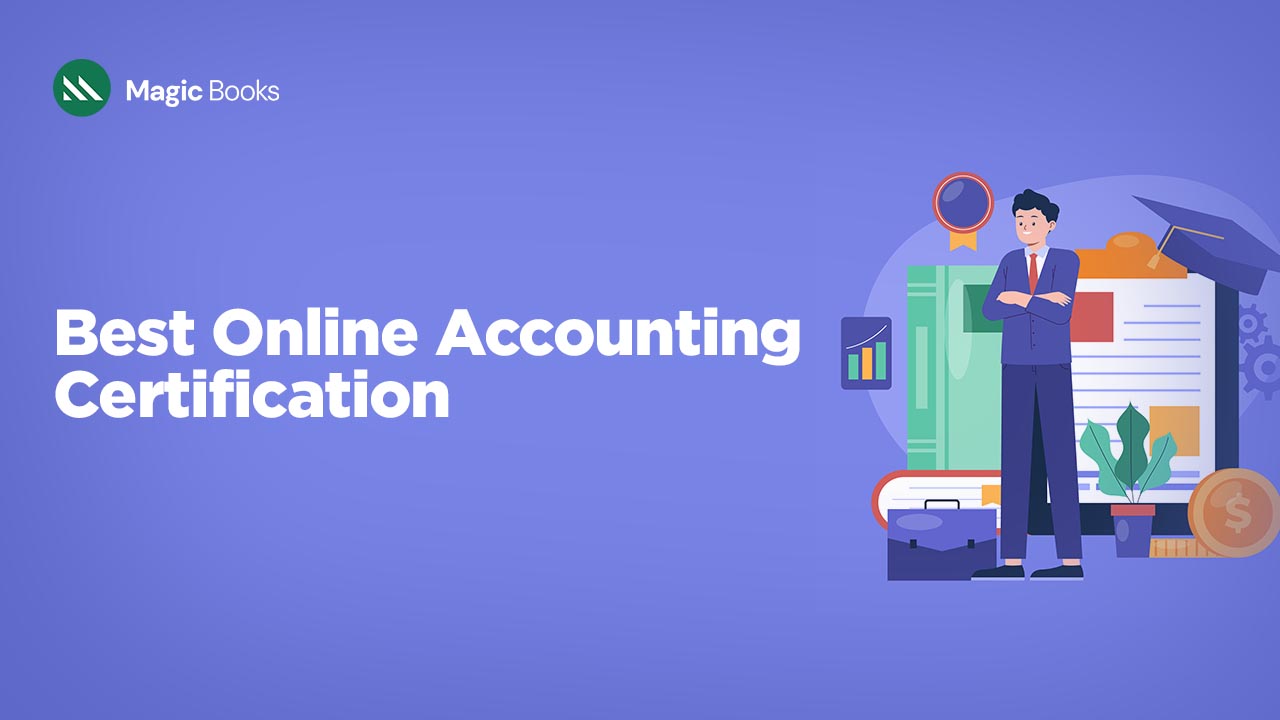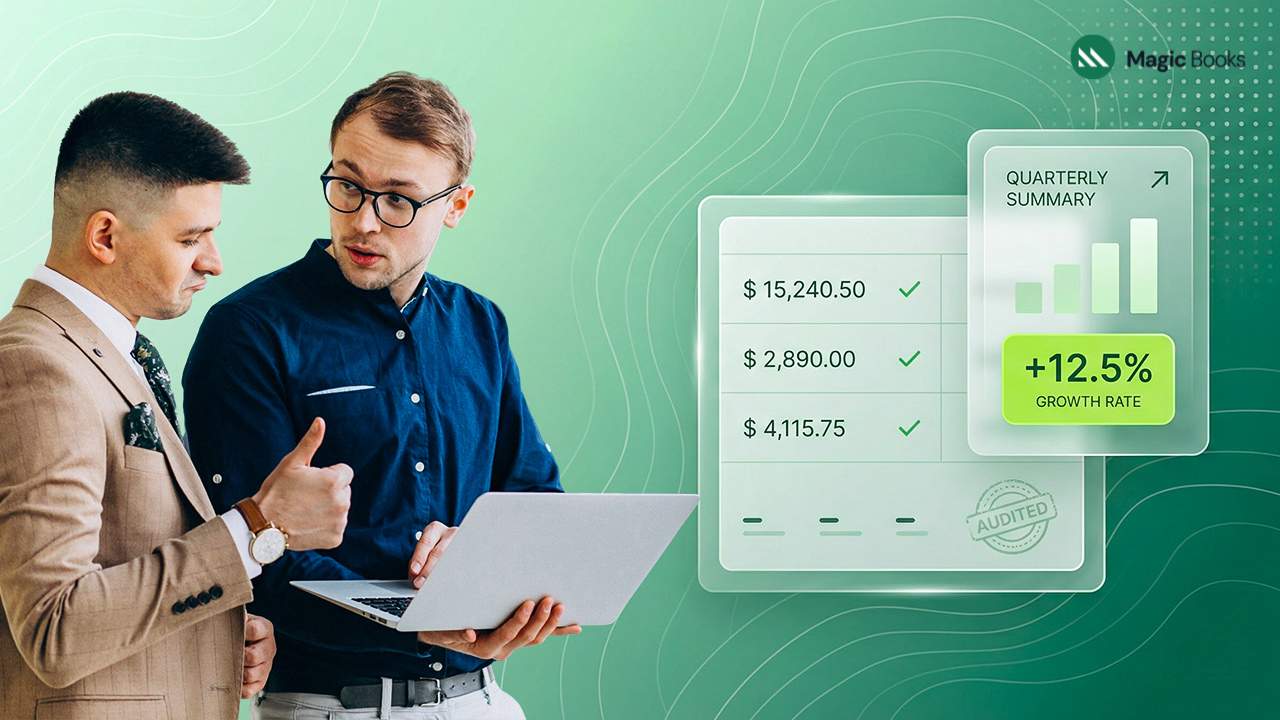“An investment in knowledge pays the best interest.” – Benjamin Franklin
If you are considering a career in finance or accounting, you might be thinking about accounting certificates. But it’s important to ask this question, do they pay off, and most importantly how do they relate to your career objectives?
While not necessarily a requirement, certificates will show that you have at least a certain amount of knowledge or experience in the field regarding your industry. This might help you more effectively prepare for entry into the accounting industry, further research a new industrial focus, or achieve new professional goals.
Many of the best schools have accounting programs. An undergraduate certificate program provides foundational knowledge in the field of accounting and core principles of accounting. Certificate programs allow for focused accounting training in entry-level positions. Once a certificate is completed, distance learners can easily transition into an online accounting degree program.
Factors to Be Considered in Choosing a Course
Certificate of Completion:
It is evidence that you know and can do. Some certificates would have to be required to qualify someone to offer some accounting services, such as public accounting.
Some free accounting courses enable one to get free education but end up paying for the certificate, while others give free education up to the certificate.
Course Content and Format:
Every course makes up the sum of its topics. Reviewing the curriculum of any course will show you whether the free accounting course can fill your knowledge gaps.
Online accounting courses can be accessed in written, audio, and video formats—something for everyone. Consider which format will best suit your needs.
Teacher:
A qualified instructor can facilitate learning significantly. Try to find an instructor who has proven experience and knowledge in the area of accounting that interests you.
Instructors with practical experience surely have passed through the same problems as you. They are certainly better placed to lead you to answers.
Experienced teachers know about “the curse of knowledge,” an attitude where one assumes everyone else possesses the same knowledge. Effective instructors make sure that their resources are clear so that any participant will understand.
Resources:
Some courses provide their teaching material in the form of e-books, templates, and quizzes. Such material makes a course more engaging and easier to understand. Some downloadable materials even help you learn about the course even after it has been completed. Learning Style & Period Most free courses are self-paced, in which you learn at your own speed. Others require module completion within a timeframe set. Both of these carry pros and cons. For this reason, ensure to choose one that suits the schedule.
Which Industry You Can Find a Job Be Found with an Online Certificate in Accounting?
Online accounting certifications would allow students to find a jobs in accounting firms, corporations, small businesses, banks, government agencies, schools and colleges, non-profit organizations, consulting firms, and startups. In general, some of the regular jobs that graduates could take up include bookkeeper, accounting and financial clerk, accounting assistant, tax preparer, and assistant of a financial analyst, among hundreds of others.
Best Accounting Certificates in 2024
Let’s consider the best accounting certificates for 2024, along with the requirements and how this might change your career trajectory.
Certificate-Based List:
1. Certified Public Accountant End: The CPA is arguably the most recognized accounting credential. Certified public accountants help individuals and companies prepare for financial planning and goal setting. Further, they can advise clients on tax and accounts matters. If you want to improve your reputation as an accountant, this is another good career path. First, you need to pass the Uniform CPA test to become a certified accountant with a CPA license. There are four sections for the exam, and the subjects are taken separately. The student is supposed to pass all of the four exams in 18 months, which is 16 hours of the exam time. In addition to the certification, most states require a licensing period before practice. Some colleges offer special courses to help the student prepare for their exam. Moreover, you have to have educational qualifications. Most of these requirements entail a bachelor’s degree in accounting, finance, or business. You have also spent years in labor.
2. Chartered Financial Analyst (CFA): A credential with a financial concentration is the CFA designation. If you’re thinking about a profession in finance or financial planning, this one is quite relevant. Examples of responsibility are the areas covered in CFA which include investment, economics, portfolio management, and professional ethics. Work experience along with a bachelor’s degree is required for gaining the designation of CFA which also has a three-level test taking 18 hours total. It can be done within 18 months; however, most take longer than two years to get the tests completed.
3. Chartered Management Accountant (CMA): On the contrary, this qualification deals with subjects on management accounting and as well deals with finance This is a degree program in management accounting. It is offered by the Institute of Management Accountants, IMA. Being a qualified management accountant helps portray your knowledge and abilities as the CPA qualification does. Again, CMAs are basically advising professionals when a CPA engages in public accounting. This is an excellent starting point for people with an interest in leadership and need to improve their strategic decision-making. You must first complete a bachelor’s degree in accounting, finance, business, or any related field. A minimum of two years’ experience in professional settings as well as passing a two-part exam that would last for eight hours must also be met.
4. CISA (Certified Information Systems Auditor): A CISA-certified accountant can oversee and protect the systems of information technology and business operations of an organization. If you are interested in IT and security, then this decision to get the accountancy certification might prove a well-informed choice. In most cases, five years or more of professional practice experience in information systems auditing, security, or control comes before obtaining a CISA certification. It may be substituted by practice experience; the amount will depend on the degree earned and where it was attained. Another requirement is a review test. The CISA exam is one generic, four-hour test available to anyone who wants to take it.
5. Certified Fraud Examiner (CFE): An accredited fraud examiner CFE seeks out and prevents fraud. He searches the financial records of his employers to identify fraud, cooperates with law enforcement agencies in presenting evidence, and may even testify in criminal trials. For certification, one needs a bachelor’s degree or working experience equalling that to gain experience within a field or practice where fraud existed. Moreover, applying candidates have to have acquired not less than two years of professional exposure. The examination entails four segments that test some different attributes of financial fraud.
6. Chartered Global Management Accountant: Developed in this exam by the largest European body of management accounting the CIMA and in order to attempt to respond to a challenge of the CMA Exam is the American Institute of Certified Public Accountants. This is a lesser-known credential in the US but might allow you to seek employment that is similar to a CMA. Depending on the country of origin, there are several paths to certification. You will first need to register as either an AICPA or a CIMA member. You will be required to pass the CGMA test. Members of the AICPA will have to gain three years of relevant work experience after passing the test.7. Certified Internal Auditor (CIA): This qualification is for compliance officers and auditors. A CIA typically works in large organizations. It may either conduct internal audits or provide necessary financial information to independent auditors. It may also be helpful if you want to become a manager or chief accounting officer of an organization. If you’re interested in becoming an internal auditor, this certification would be great for that purpose. A bachelor’s degree and at least two years of professional experience; or, one year of professional experience and a qualifying master’s degree are required. Relevant experience must also have been gained within the work environment, where this refers to internal auditing. Work in compliance, internal control, or quality assurance would be examples. Testing for certification is available. Three such portions are back-to-back, amounting to three sections and 6.5 hours of assessment.



